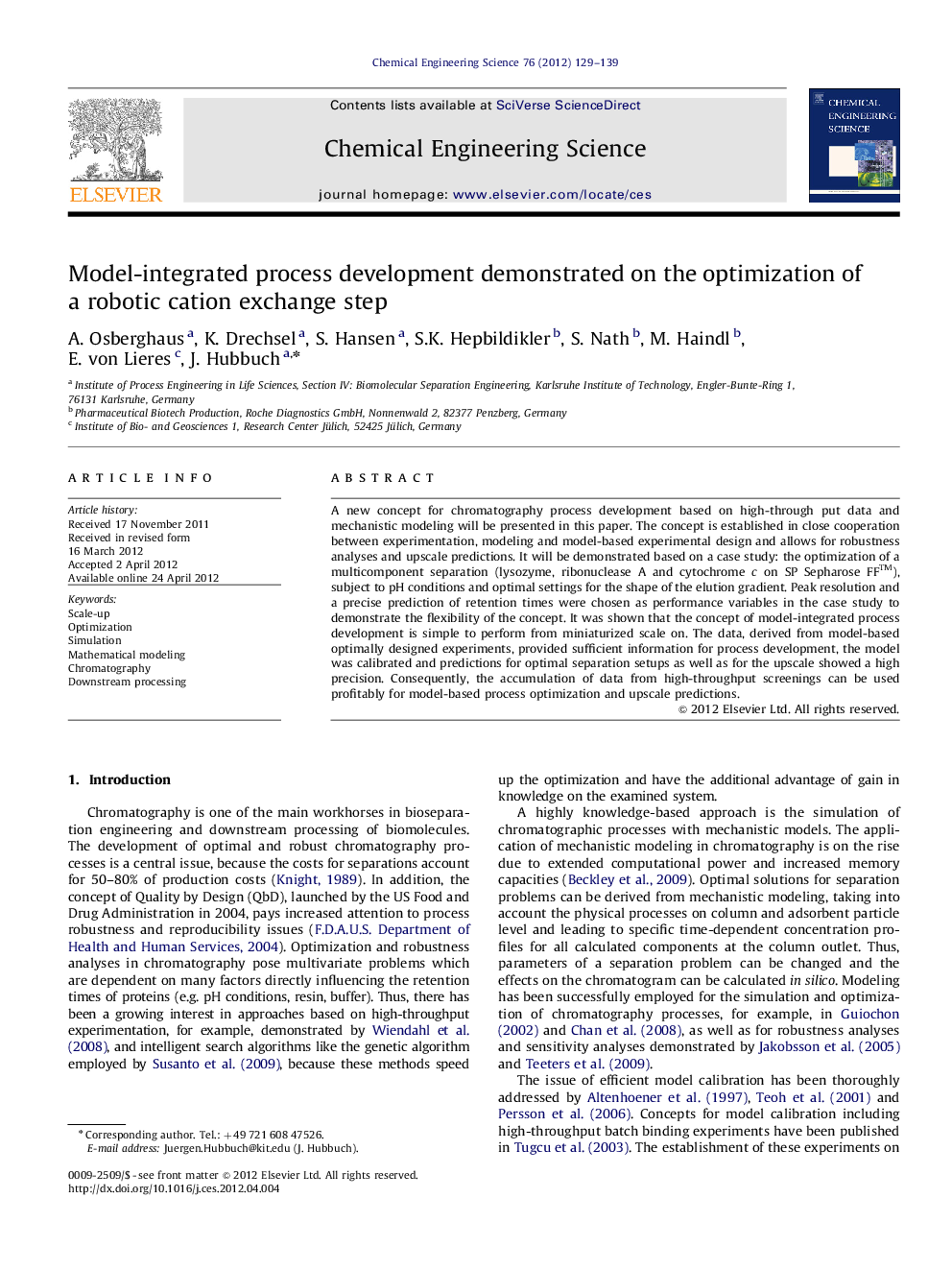| Article ID | Journal | Published Year | Pages | File Type |
|---|---|---|---|---|
| 155802 | Chemical Engineering Science | 2012 | 11 Pages |
A new concept for chromatography process development based on high-through put data and mechanistic modeling will be presented in this paper. The concept is established in close cooperation between experimentation, modeling and model-based experimental design and allows for robustness analyses and upscale predictions. It will be demonstrated based on a case study: the optimization of a multicomponent separation (lysozyme, ribonuclease A and cytochrome c on SP Sepharose FFTM), subject to pH conditions and optimal settings for the shape of the elution gradient. Peak resolution and a precise prediction of retention times were chosen as performance variables in the case study to demonstrate the flexibility of the concept. It was shown that the concept of model-integrated process development is simple to perform from miniaturized scale on. The data, derived from model-based optimally designed experiments, provided sufficient information for process development, the model was calibrated and predictions for optimal separation setups as well as for the upscale showed a high precision. Consequently, the accumulation of data from high-throughput screenings can be used profitably for model-based process optimization and upscale predictions.
► Mechanistic modeling based on HTS data for chromatographic separation is introduced. ► An empiric (RSM) and a mechanistic approach for process optimization are compared. ► A thorough evaluation of advantages and disadvantages of both methods is given. ► Mechanistic modeling is the method of choice for optimization and upscale prediction. ► Consequently, a concept of model-integrated process development is introduced.
